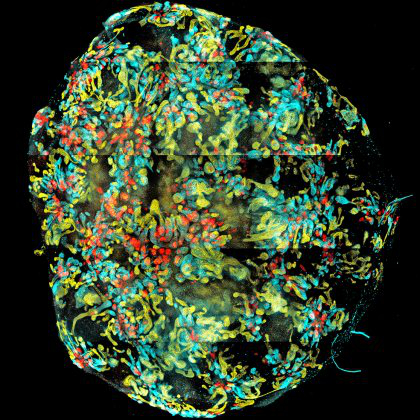'Human' kidney grown in pig
 Researchers have grown ‘humanised’ kidneys inside pigs using human embryonic stem cells.
Researchers have grown ‘humanised’ kidneys inside pigs using human embryonic stem cells.
The pioneering method involves merging human stem cells with pig cells during the embryo stage.
To ensure the human cells thrived, they genetically modified a single cell in the pig embryo, eliminating two genes crucial for kidney development.
After 28 days of growth, these ‘chimaera’ kidneys exhibited the characteristics of functional human kidneys, with an impressive 50-60 per cent human cell composition.
While these organs remain unsuitable for human transplantation at present, they hold great promise for advancing our understanding of organ development and diseases.
This milestone, detailed in the journal Cell Stem Cell, marks the first instance of successfully cultivating a ‘humanised’ organ within another species.
Previous attempts focused on generating human tissues like blood or skeletal muscle in pigs but fell short of organ production.
Kidneys were chosen for this work due to their early development in embryos and their status as one of the most commonly transplanted human organs.
“Rat organs have been produced in mice, and mouse organs have been produced in rats, but previous attempts to grow human organs in pigs have not succeeded,” says lead author Liangxue, from the Guangzhou Institutes of Biomedicine and Health.
“Our approach improves the integration of human cells into recipient tissues and allows us to grow human organs in pigs.”
The researchers overcame several challenges in integrating human stem cells into pig embryos.
They had to create a favourable environment within the pig embryo, genetically modifying it with CRISPR to eliminate the two essential kidney development genes.
They also engineered human pluripotent stem cells, making them more adaptable and resistant to self-destruction. These cells were then transformed into “naïve” cells resembling early human embryonic cells.
Before implanting the embryos into surrogate sows, the researchers ensured optimal growth conditions, meeting the distinct needs of both human and pig cells.
In total, 1,820 embryos were transferred to 13 surrogate mothers, with gestation terminated at either 25 or 28 days for evaluation.
Analysis of five chimeric embryos revealed structurally normal kidneys, composed of 50-60 per cent human cells.
These kidneys had reached the mesonephros stage, featuring tubules and budding cells that would eventually form ureters connecting to the bladder.
To address ethical concerns about human cells spreading throughout the pig embryos, the researchers found that human cells mainly resided in the kidneys, with minimal presence in neural or germline tissues.
Looking ahead, the research team plans to extend the kidney development duration and explore the creation of other human organs in pigs, including the heart and pancreas.
While the ultimate goal is human organ transplantation, achieving this will be a complex and lengthy process due to the diverse cell types within organs.
More details are accessible here.








 Print
Print